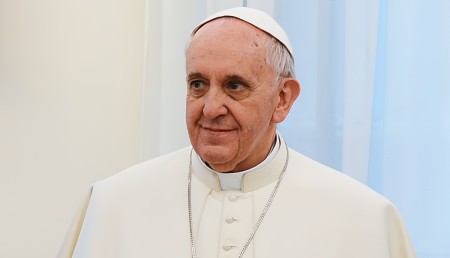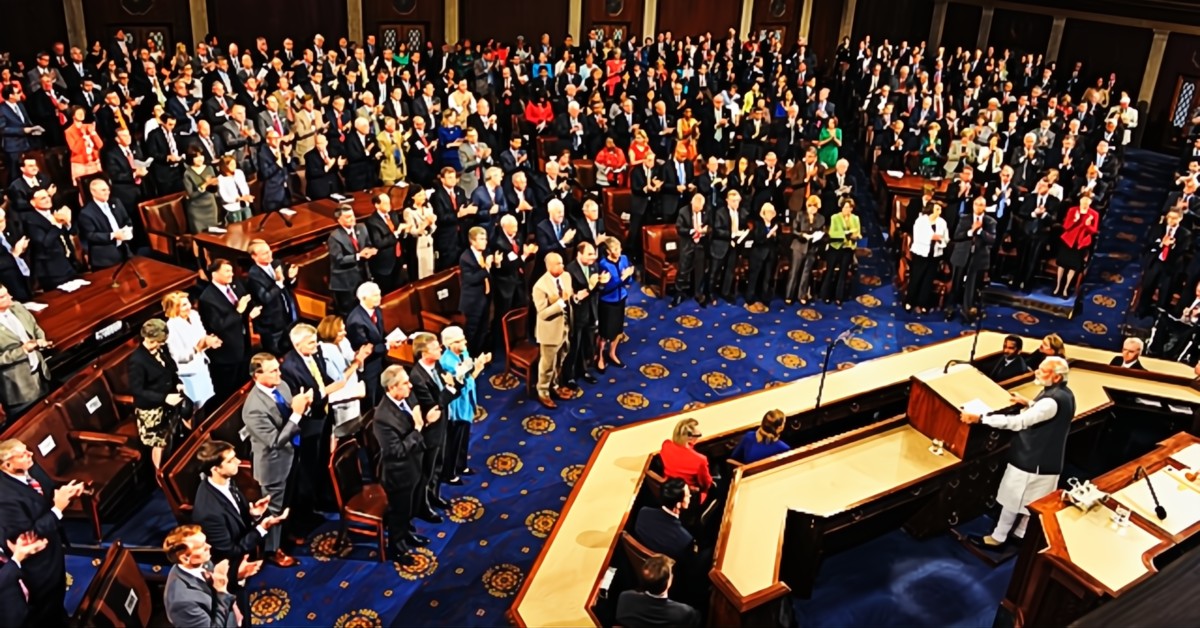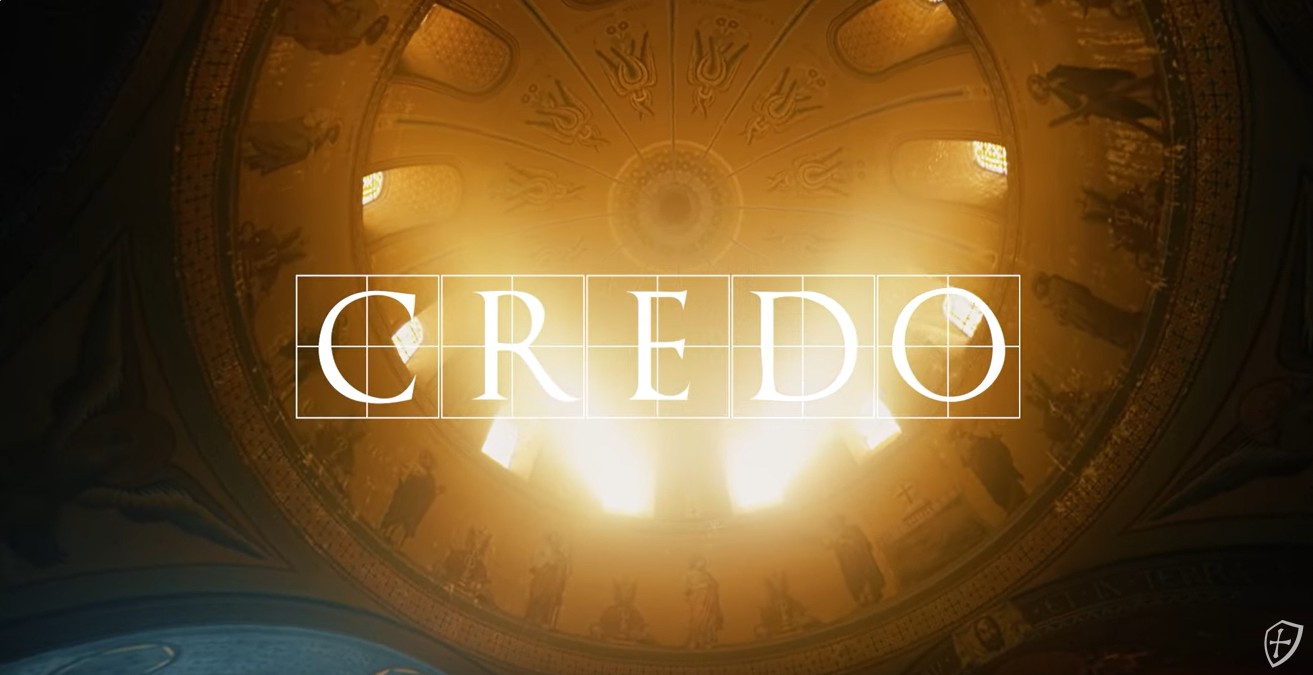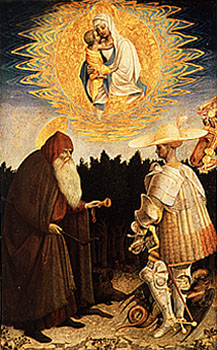 Dear readers, Catholic Online was de-platformed by Shopify for our pro-life beliefs. They shut down our Catholic Online, Catholic Online School, Prayer Candles, and Catholic Online Learning Resources—essential faith tools serving over 1.4 million students and millions of families worldwide. Our founders, now in their 70's, just gave their entire life savings to protect this mission. But fewer than 2% of readers donate. If everyone gave just $5, the cost of a coffee, we could rebuild stronger and keep Catholic education free for all. Stand with us in faith. Thank you. Help Now >
Dear readers, Catholic Online was de-platformed by Shopify for our pro-life beliefs. They shut down our Catholic Online, Catholic Online School, Prayer Candles, and Catholic Online Learning Resources—essential faith tools serving over 1.4 million students and millions of families worldwide. Our founders, now in their 70's, just gave their entire life savings to protect this mission. But fewer than 2% of readers donate. If everyone gave just $5, the cost of a coffee, we could rebuild stronger and keep Catholic education free for all. Stand with us in faith. Thank you. Help Now >
Pius XII and His Bible Revolution
FREE Catholic Classes
May this Servant of God, on the path to beatification and canonization, continue to intercede for all us as we discover new ways to make God's word alive, known, loved and available to the world.
Highlights
Zenit News Agency (www.zenit.org)
10/10/2008 (1 decade ago)
Published in Europe
VATICAN CITY (Zenit) - For decades, the figure of Eugenio Pacelli, Pope Pius XII, has been at the center of some volatile polemics.The controversy has raged since the end of the Holocaust over whether the Pope did and said enough in defense of the Jews and other victims of the Nazis. The Roman Pontiff, who guided the Church through the terrible years of the Second World War and the Cold War, is the victim of a "black legend," which has proven difficult to combat and is so widespread that many consider it to be more true than the actual historical facts.
One of the unpleasant secondary consequences of this black legend, which falsely portrays Pius XII as indulgent toward Nazism and indifferent to the fate of the victims of persecution, has been to sideline or even obliterate the extraordinary teaching and contribution of this Pope who was a precursor of the Second Vatican Council.Pius XII must be remembered for his encyclical "Mediator Dei," the great preparatory work that would flow into the conciliar liturgical reform. It is the same Pope who, in the encyclical "Humani Generis," takes evolutionary theory into consideration. Pius XII also gave notable impetus to missionary activity with the encyclicals "Evangelii Praecones" in 1951, and "Fidei Donum" in 1957, highlighting the Church's duty to proclaim the Gospel to the nations, as Vatican II would amply reaffirm.
One of the most frequent questions among the many foreign journalists covering the "Synod on the Word of God in the Life and Mission of the Church" deals with this morning's commemoration of the 50th anniversary of the death of Pius XII in the context of the synod.At 11:30 today, just after the synod's morning session, Benedict XVI presided at a Mass in St. Peter's Basilica, attended by, among others, all participants at the synod and a host of other people to mark this anniversary. I have been asked numerous times in the Vatican press center, "Why did this commemoration take place today in the midst of a Synod on the Bible?" Or, "What does Pope Pius XII have to do with the Scriptures?"
My answer to the first question has been: "Because Oct. 9 marks the date of his death in 1958, and today happens to be Oct. 9. When would you like the Pope to commemorate this anniversary? On Christmas Day?" To the second question, my answer has been: "Everything. Pius XII has everything to do with what is taking place in the synod hall and in the small groups and among anyone around the Catholic world who wishes to take Scripture studies seriously." Alas, like the rich young man in the New Testament, several went away sad because of my answers to their questions.
Biblical criticism
A synod on the Bible cannot ignore nor forget the landscape of Catholic biblical studies in the last century. Physical, historical, and linguistic methods, known to us only in approximately the last 125 years, have produced a scientifically critical study of the Bible, a study that has revolutionized views held in the past about the authorship, origin, and dating of the biblical books, about how they were composed, and about what their authors meant.In the first 40 years of the last century (1900-1940), the Roman Catholic Church clearly and officially took a stance against such biblical criticism. The modernist heretics at the beginning of the last century employed biblical criticism, and the official Vatican condemnations of modernism made little distinction between the possible intrinsic validity of biblical criticism and the theological misuse of it by the modernists.
Between 1905 and 1915 the Pontifical Biblical Commission issued a series of conservative decisions on the composition and authorship of the Bible. Although phrased with nuance, these decisions ran against the trends of contemporary Old and New Testament investigations. Catholic scholars were obliged to assent to these decisions and to teach them.
After 40 years of strident opposition, the Catholic Church in the 1940's, under the pontificate of Pius XII, made an undeniable about-face toward biblical criticism. That Pontiff's 1943 encyclical "Divino Afflante Spiritu" instructed Catholic scholars to use the methods of scientific approach to the Bible that had hitherto been forbidden to them. It was now safe for Catholic scholars to take up the methods that were previously forbidden. A particular aspect of the encyclical definitively steered Catholics away from fundamentalism: namely, the recognition that the Bible includes many different literary forms or genres, not just history.Within 10 years teachers trained in biblical criticism began to move in large numbers into Catholic classrooms in seminaries and colleges, so that the mid-1950's really marked the watershed. By that time the pursuit of the scientific method had led Catholic exegetes to abandon almost all the positions on biblical authorship and composition taken by the Vatican at the beginning of the century.
Historical-Critical
"Divino Afflante Spiritu" sparked an enormous growth in Catholic biblical scholarship. New teachers were trained, and the results of the changed approach to Scripture were gradually communicated to the people -- the very steps that Pius XII had urged. "Papa Pacelli" opened up the application of the historical-critical method to the Bible, and established the doctrinal norms for the study of sacred Scripture, emphasizing the importance of its role in Christian life. After sacred Scripture, the Second Vatican Council's documents cite no single author as frequently as Pius XII.
Let us remember some other key facts about the Pope's story and about history. Pius XII led the Catholic Church from 1939 to 1958. Immediately before his election, then Cardinal Eugenio Pacelli was the Vatican secretary of state. He, more than anyone else in the Vatican, knew what was happening in the world. Pius XII was not only the Pope of the Second World War, but a pastor who, from March 2, 1939, to Oct. 9, 1958, had before him a world at war during very troubled times.Those who attack Pius XII often do so for ideological reasons. The campaign against him was started in the Soviet Union and was then sustained in various Catholic environments. He took sides against the Communist world in a severe, strong and determined way.
As Benedict XVI pointed out this morning in his moving homily and tribute to his predecessor, Pius XII, Hitler and his closest followers were motivated by a pathological hatred for the Catholic Church, which they appraised correctly as the most dangerous opponent to what they hoped to do in Germany. There was radical divergence between the Nazis and the Catholic Church. Papa Pacelli cannot be the person who is blamed for something that belongs in a complex way to the world community.Popes do not speak with the idea of pre-constituting a favorable image for future ages. They know that the fate of millions of Christians can at times depend on their every word; they have at heart the fate of men and women of flesh and blood, not the applause or fleeting approval of historians.
Prudence
Pius XII was not concerned for his reputation, but with saving Jewish lives and this was the only just decision, which clearly required wisdom and a great amount of courage. The Pope protested vehemently the persecution of Jews, but he explained in 1943 that he could not speak in more dramatic or public terms without the risk of making things much worse than they were. His was a prophecy in action, which saved the lives of countless victims of the neo-pagan Nazi reign of terror, rather than potentially counter-productive public statements.Since Pius XII's death 50 years ago today, the Church has taken great strides in forging closer relations with the Jewish faith. Pope John Paul II made Jewish-Christian relations a priority of his pontificate. Benedict XVI has continued on that path. Both Popes have strongly defended the actions of Pius XII, while speaking as well of the silence and inaction of some other Catholics during the Holocaust.
In my other life in Toronto, when I am not serving as the "Deputati Notitiis Vulgandi" for Vatican synods on the Word of God, I am the "Director Exsecutivus Retis Televisifici Catholici 'Salt and Light.'" This week we are premiering our latest documentary "A Hand of Peace: Pope Pius XII and the Holocaust."Through a generous grant from the Knights of Columbus, each synod father, expert, auditor and staff person received a copy of the documentary this morning during the synod. Benedict XVI received his copy yesterday.It is our hope that this documentary will shed light and truth on this Pius XII's life, prophetic actions, courageous words and his significant contributions to Scripture scholarship and to humanity. We can learn much from Eugenio Pacelli's wisdom, heroism, courage and prophetic gestures during a very dark period of world history.
Pius XII has been called many names. He is a significant patron and intercessor for the synod now under way at the Vatican. We owe much to him and remain every grateful for his foresight, vision and love of God's word. May this Servant of God, on the path to beatification and canonization, continue to intercede for all us as we discover new ways to make God's word alive, known, loved and available to the world.
* * *
Basilian Father Thomas Rosica is the Vatican's English-language press attache for the 2008 world Synod of Bishops. A Scripture scholar and university lecturer, he is the chief executive officer of the Salt and Light Catholic Media Foundation and Television Network in Canada, and a member of the General Council of the Congregation of St. Basil.
Join the Movement
When you sign up below, you don't just join an email list - you're joining an entire movement for Free world class Catholic education.

-

-
Mysteries of the Rosary
-
St. Faustina Kowalska
-
Litany of the Blessed Virgin Mary
-
Saint of the Day for Wednesday, Oct 4th, 2023
-
Popular Saints
-
St. Francis of Assisi
-
Bible
-
Female / Women Saints
-
7 Morning Prayers you need to get your day started with God
-
Litany of the Blessed Virgin Mary
Pope Francis Suffers Fall: A Look at Papal Health and Succession
-

The Erosion of Civility in Congressional Hearings: A Call for Professional Decorum
-

Bishop Strickland and Others Defend Apostolic Tradition in New Documentary on the Church's Enduring ...
-
At Least 25 Dead as Wildfires Continue to Rage Across Los Angeles, Arson Investigations Underway
-
Australian Woman Charged with Torture After Exploiting Child for Donations
Daily Catholic
 Daily Readings for Friday, January 17, 2025
Daily Readings for Friday, January 17, 2025 St. Anthony the Abbot: Saint of the Day for Friday, January 17, 2025
St. Anthony the Abbot: Saint of the Day for Friday, January 17, 2025 Prayer for a Blessing on the New Year: Prayer of the Day for Tuesday, December 31, 2024
Prayer for a Blessing on the New Year: Prayer of the Day for Tuesday, December 31, 2024- Daily Readings for Thursday, January 16, 2025
- St. Fursey: Saint of the Day for Thursday, January 16, 2025
- St. Theresa of the Child Jesus: Prayer of the Day for Monday, December 30, 2024
![]()
Copyright 2024 Catholic Online. All materials contained on this site, whether written, audible or visual are the exclusive property of Catholic Online and are protected under U.S. and International copyright laws, © Copyright 2024 Catholic Online. Any unauthorized use, without prior written consent of Catholic Online is strictly forbidden and prohibited.
Catholic Online is a Project of Your Catholic Voice Foundation, a Not-for-Profit Corporation. Your Catholic Voice Foundation has been granted a recognition of tax exemption under Section 501(c)(3) of the Internal Revenue Code. Federal Tax Identification Number: 81-0596847. Your gift is tax-deductible as allowed by law.








 Daily Readings for Friday, January 17, 2025
Daily Readings for Friday, January 17, 2025 St. Anthony the Abbot: Saint of the Day for Friday, January 17, 2025
St. Anthony the Abbot: Saint of the Day for Friday, January 17, 2025 Prayer for a Blessing on the New Year: Prayer of the Day for Tuesday, December 31, 2024
Prayer for a Blessing on the New Year: Prayer of the Day for Tuesday, December 31, 2024

